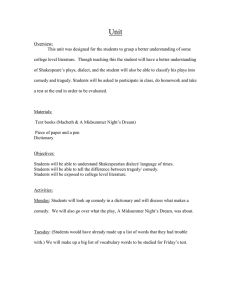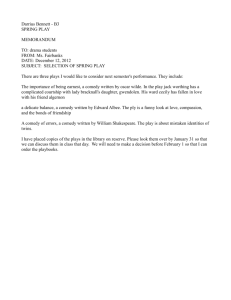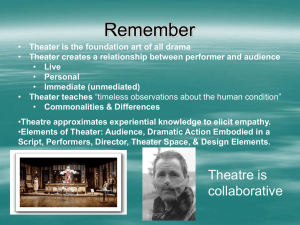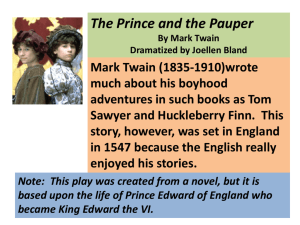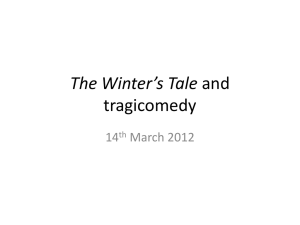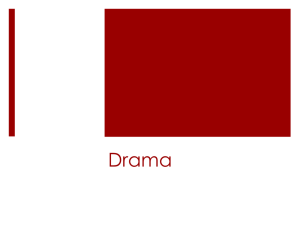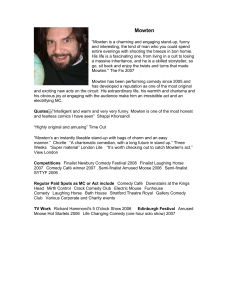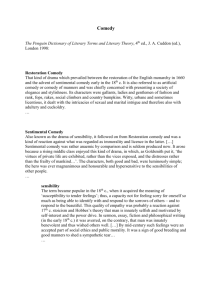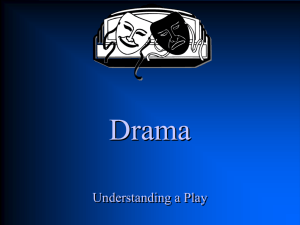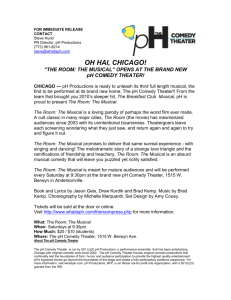varieties of drama ppp
advertisement
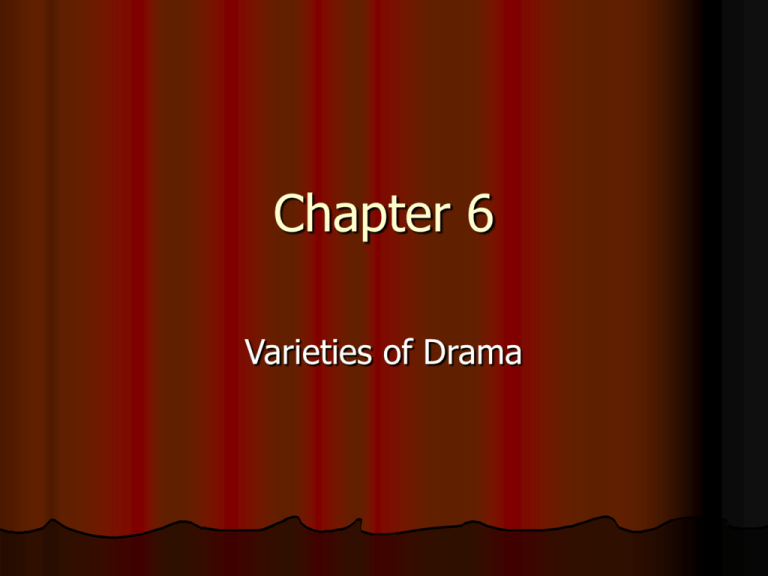
Chapter 6 Varieties of Drama Tragedy The protagonist fails to achieve goals, is overcome by opposing forces, often dies Sober, thoughtful plays that are based on profound human emotions and conflicts that do not change with time or place Based on Aristotle’s rules (tragic flaw, unities, catharsis) comedy Protagonist “wins” Humorous characters and situations Happy ending Based on “thought” Comes from Greek word “komos” meaning “revel song” Tragicomedies – plays that have qualities of both tragedy and comedy Dramas – plays that do not fit the definition of tragedy but are serious in nature are simply called dramas. 7 causes of laughter Exaggeration Overstatement in dialogue, action, or physical characteristics Understatement incongruity Anything that is out of time, place, or character Anticipation Looking forward to a potential laugh At least 3 exposures – the plant, establish, and the clinch Ambiguity Double meaning Puns Recognition Discovering hidden or obscure meanings “getting it” Protection Knowing that cruel, violent, grotesque and abusive actions and events are not real Relief Anything humorous used to release built up pressure (often used in tragedies) Types of comedy Low – quite physical, sometimes vulgar, and highly exaggerated Farce – clowning, practical jokes, “slapstick,” improbable characters and situations Burlesque – mocks a broad topic Caricature – impersonations – often exaggerations of physical features or personality traits Middle comedy – humor that appeals to the heart Romantic comedy Melodrama – flawless hero + evil villain High comedy – very intellectual Comedy of manners Satire Clever lines, word play, and allusions Style theatrical conventions Representational – “fourth wall” theater The play is performed as if the audience were watching through an imaginary fourth wall. (most common) Presentational – acknowledges that an audience is present. Characters may even address the audience. Avant-garde – new experimental styles of any art form Styles of Drama Classicism – based on Greek, Roman, or Shakespearean theater Fantasy – unreal characters in imaginary time and place Romanticism – shows life as it could be Realism – shows life as it is Naturalism – realism to the extreme “no holds barred” Symbolism – where at least one element represent something else Expressionism – the uselessness of human hopes in the face of the evils of the modern age – social injustice Impressionism – shows the inner reactions of characters under great stress Theater of involvement – audience participation Theater of the absurd – deal with the “absurdity” of life Special styles Children’s theater – written, designed, and performed for children Puppet theater – Monodrama – “one man show”
